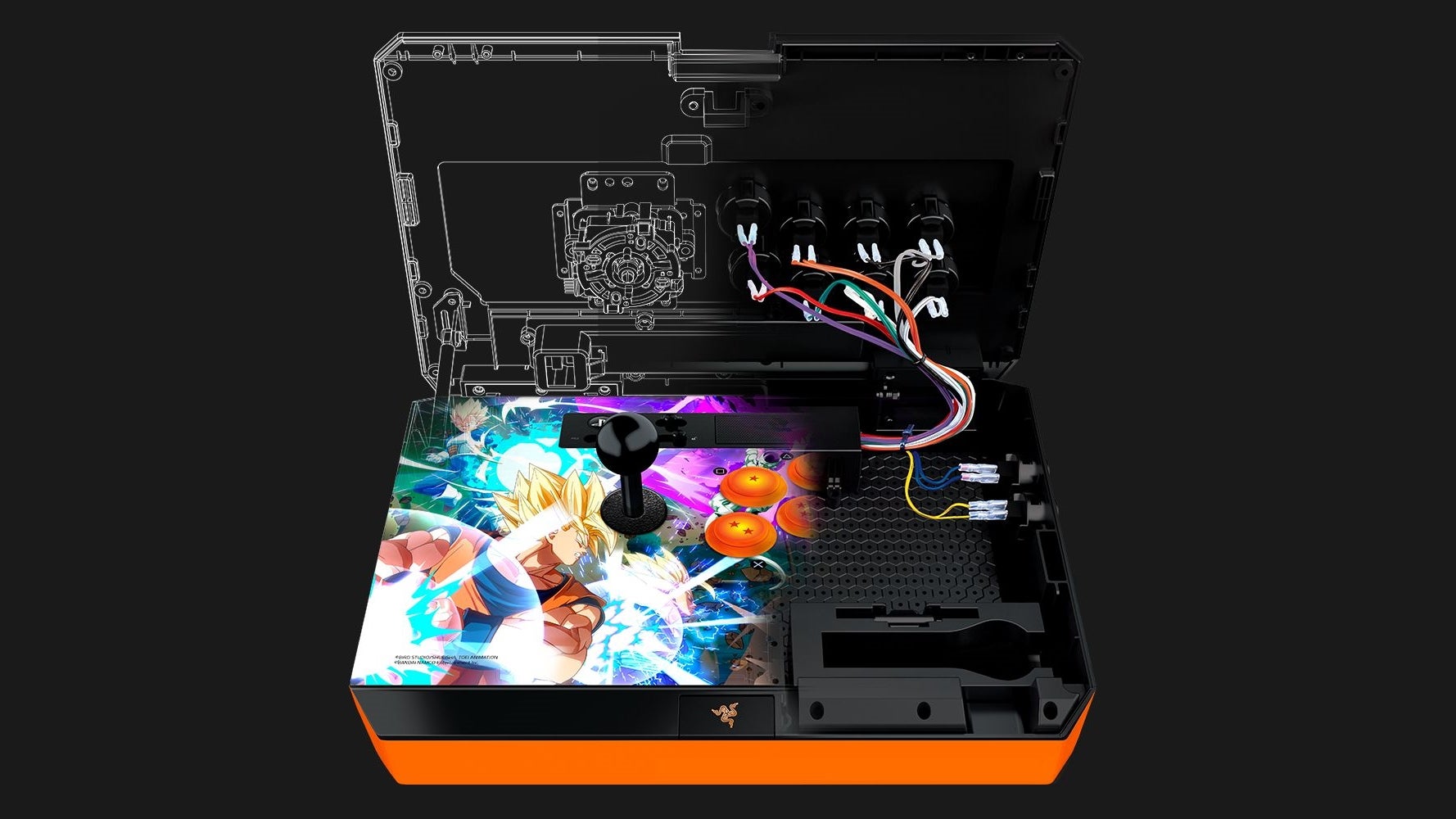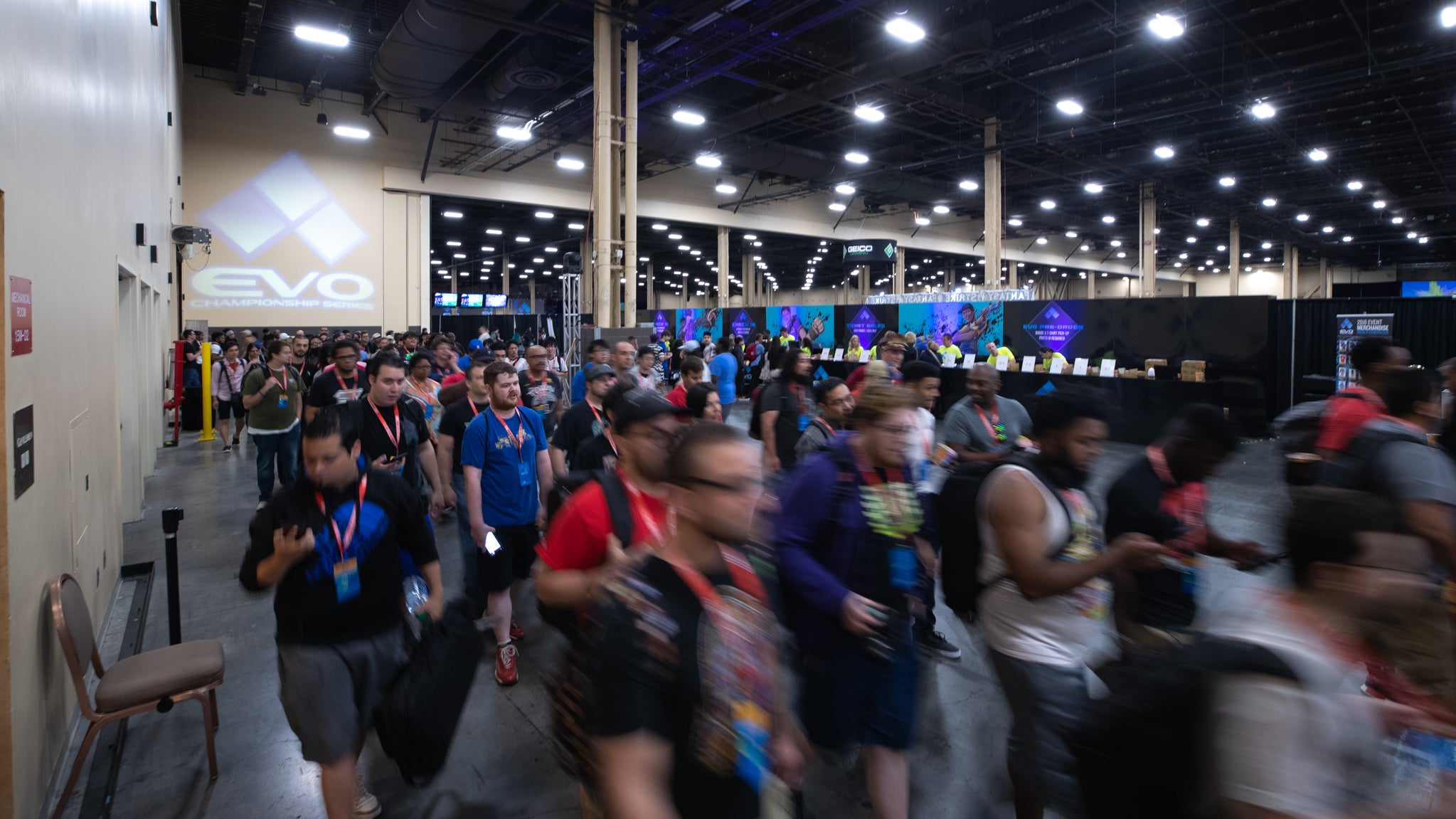In response to the recent mass shooting tragedy in Jacksonville, during which two Madden competitors were killed and 11 more were injured by a fellow player, the annual SoCal Regionals fighting game tournament in the US state of California will enforce additional security measures in an effort to protect attendees. The most glaring policy is the event’s implementation of mandatory arcade stick checks, asking players to unscrew and open their peripherals for further inspection.
With comments closed on the official announcement, the fighting game community was left to sound off on its favourite social media platform: Twitter. Some have thanked SoCal Regionals organiser Level Up, with one player saying that, after Jacksonville, “I’ll take [the new policies] over lack of security any day.” But others haven’t been as positive. Attorney and commentator David “UltraDavid” Graham claimed the announced security measures were “too much,” and longtime competitor Scott “Sabre” Bender referred to the move as “absolute absurdity” and “unbelievably ridiculous.”
For years, the SoCal Regionals have been one of the most important tournaments in the fighting game community calendar, and their prominence has grown thanks to being chosen as a stop on the official pro tours for Street Fighter V, Dragon Ball FighterZ, Tekken 7, and Injustice 2. Registration numbers have yet to be finalised, but if last year’s event is any indication, hundreds are expected in Ontario, California the weekend of 14 September.
Jimmy Nguyen, the president and chief operating officer of Level Up, told Kotaku that community concerns following the Jacksonville shooting were the driving force behind this new policy. “As an event organiser, you have to listen to all of the feedback and make a decision that puts safety first,” he explained. “We run community events and listen to their feedback. The looming conversation around SoCal Regionals is currently mainly about safety. If we did nothing about it, we aren’t serving the community.”
A recent tweet in which Capcom thanks the community for their understanding seems to point to the developer’s involvement in the decision. Capcom organises the Street Fighter V tournament circuit that the SoCal Regionals call home. When asked about any affect Capcom may have had on this policy, however, Nguyen repeated that feedback from the community was the key influence. Capcom did not respond to a request for comment.
Fighting game legend Justin Wong says, although arcade stick inspections feel “a little extreme,” it’s “better to be safe than sorry.”
Although great strides have been made to make arcade sticks more accessible and customisable for the fighting game community at large, they’re still solid pieces of equipment that take some work to disassemble. Sticks without accessible latches often require users to unscrew the various panels that go into their construction, and when the insides are finally exposed, there’s very little room to hide anything besides maybe some small snacks. That being said, the folks behind SoCal Regionals believe adding this layer of security on top of bag checks and metal detectors (both handheld and walk-through) will make their event safer despite the added 1-2 hours of waiting they expect attendees to experience as they enter the venue.
This is a unique problem in the world of competitive gaming. Where esports like League of Legends and Overwatch run competitions that focus solely on select high-profile teams, fighting game events are open-bracket affairs that give everyone a shot at greatness. As such, a majority of the attendees at tournaments like SoCal Regionals are there to compete and will be walking into the venue with all kinds of peripherals with which to do so. It isn’t hard to imagine these additional security measures bottlenecking hundreds of attendees, turning the often-crowded lines into even greater time-sinks and, possibly, soft targets themselves.


Some arcade sticks, like Razer’s Panthera, feature a simple latch for opening, but a majority of peripherals do not. (Image: Razer)
“While I understand the response, I feel in part that there’s a sense of panic and a desire from the community for a knee-jerk reaction,” Street Fighter V competitor Brian “Brian F” Foster told Kotaku. “People are scared, and the recent shooting showed a violation of what many in the community perceive to be their safe space. I think there was a demand from the community to provide both a fast and actionable response to the safety concerns. While security at events has always been suspect, they mostly behave like a public space; people can enter as they choose and participate if they want. I don’t expect or want increased levels of security in all public spaces. There comes a certain point where it transitions from security to security theatre, simply to ease the minds of people who are anxious and scared.”
Foster’s claim that SoCal Regionals’ new layer of scrutiny amounts to “security theatre”—visible security procedures that often do little to actually make people safe—has been common since the arcade stick inspections were first announced. The most well-known example of this phenomenon is the US Transportation Security Administration (TSA) and the practices they employ during airport security checks.
Despite the TSA asking travellers to remove their shoes, belts, hats, jackets, etc. and offload everything into plastic bins for further examination before submitting to a full body scan, a 2016 report from America’s Department of Homeland Security found that undercover investigators were able to sneak fake explosives and weaponry past TSA agents and onto aeroplanes 95% of the time. In a post-9/11 world, terrified Americans were looking for anyone and anything to make them feel safe while they travelled, and the implementation of ostentatious, pre-flight inspections did the trick while amounting to very little in terms of improving security.
“The request to have players open their arcade sticks, even sticks with no easy way to be opened besides removing several screws to take apart the panelling, is way over the top,” Foster continued. He also worried that having to unscrew part of the controller and then put it back together could introduce defects into the stick that would affect performance.
Event organiser Jimmy Nguyen: “The looming conversation around SoCal Regionals is currently mainly about safety. If we did nothing about it, we aren’t serving the community.”
Justin Wong, on the other hand, says he doesn’t mind SoCal Regionals’ new security measures. The community veteran, who has been attending (and winning) fighting game tournaments for decades, explained to Kotaku that although arcade stick inspections feel “a little extreme,” it’s “better to be safe than sorry.”
Right now, a lot of details are up in the air, and the organisers were unwilling to delve into specifics before the event. Will attendees have to open up their arcade sticks every time they leave and return to the venue? What happens in the event security personnel damage an expensive peripheral? And will warranties on this equipment be voided by such an intrusion?
Early on, Chinese arcade stick manufacturer Qanba told one player that, yes, his warranty would be null should it be opened, but recently walked that back, saying that they are working with SoCal Regionals to keep track of whose controllers were inspected as to maintain warranties. Hori, a similar company based in Japan, told Kotaku that they too will not be voiding the warranties of SoCal Regionals attendees who are asked to open their arcade sticks as long as they aren’t “modified or altered” in any way. We’ve also reached out to peripheral developers Razer and Hitbox for their takes on the matter.


Photo: Robert Paul, Evo
David Graham, the attorney and commentator, reiterated many of the same concerns as Foster during a short conversation with Kotaku, saying, “I don’t want the inconvenience and invasion of privacy of security theatre to outweigh the value of actual security, and I think this does that.” That said, he understands that SoCal Regionals has to do something in the face of a federal government that seems unable to deal with the ever-present risk of gun violence. When asked if the event could face any legal backlash for asking attendees to possibly void their arcade stick warranties, Graham said that probably wouldn’t be the case. “It’s up to the owner of each stick to decide if they want to void the warranty on their stick,” he added. “If players don’t want to void their warranties, they can avoid SoCal Regionals. It’s totally up to them.”
Street Fighter competitor Brian Foster: “I don’t expect or want increased levels of security in all public spaces. There comes a certain point where it transitions from security to security theatre, simply to ease the minds of people who are anxious and scared.”
In the same way this arcade stick issue is confined to the fighting game community, gun violence is a problem that’s been pretty much solved in the developed world outside of the United States. Any conversation on this matter must discuss the myriad ways that state and federal governments have failed American citizens. According to the latest findings of the Small Arms Survey, a global group dedicated to studying armed violence, and originally reported by The Washington Post, there are now enough guns in the United States to give one to every person in the country with a remaining surplus of 67 million firearms.
Little action has been taken by the US Congress to enact effective gun control policies, like closing state-level loopholes that allow private gun show sellers to bypass background checks or even enforcing current laws that limit the access known domestic abusers have to firearms.
Mass shootings have become an integral part of the fabric of American life, but little is done apart from an offering up of the now-memetic “thoughts and prayers” by politicians. What happened in Jacksonville may have been a wakeup call for the competitive gaming community. It was a sign that, along with high schools, university campuses, cinemas, night clubs, and concert halls, video game tournaments are just as susceptible to these kinds of tragedies as anywhere else. It’s hard to fault anyone looking for a feeling of safety in a country that’s proven itself to be anything but; my only hope is that this newfound fervour to combat gun violence begets more political activism in esports, akin to the teenagers of Parkland, in addition to heightened security measures that may or may not work.
Ian Walker loves fighting games and writing about them. You can find him on Twitter at @iantothemax.
Photo: SoCal Regionals

